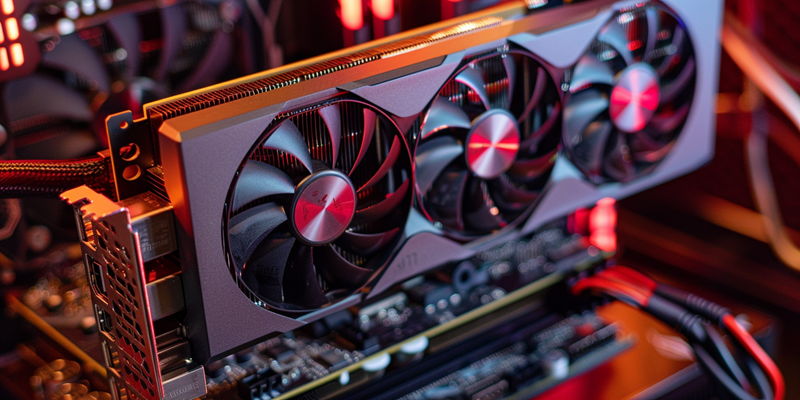The landscape of the AI GPU market in China is experiencing a significant shift with the expected launch of NVIDIA’s next-generation ##00 graphics processing units (GPUs). This anticipation has led to a sudden decrease in the black market price for its predecessor, the #00, which is indicative of the fast-paced nature of the technology sector where newer models often depreciate the value of previous ones, even in unofficial marketplaces.
Dynamics of the Black Market
The Decline of #00 Pricing
The waning interest in NVIDIA’s #00 AI GPUs within China’s black market circles is a marker of the evolving tech landscape. While these GPUs were traded at an astonishing $415,000 due to the restrictions imposed on cutting-edge AI products by the U.S., there is now a noticeable downward trend. The price drop to approximately $359,000, a decrease of about 13%, signifies how the shadow economy responds rapidly to technological progress, much like their legal counterparts. The black market operates on principles of supply and demand, adjusting prices as the launch of NVIDIA’s ##00 looms on the horizon. This new GPU is built on the Hopper architecture, poised to usher in enhanced capabilities for AI applications.
Anticipation of ##00 Impact
The arrival of the ##00 series is undoubtedly the primary catalyst for the decrease in the black market price for the #00 GPU. Such a trend is common in the tech industry, where the old rapidly gives way to the new. Enthusiasts and professionals alike eagerly wait to harness the improved computational power and efficiencies promised by the new generation of AI chips. Even with international restrictions in place, it’s expected that the ##00 will find its way into the Chinese market, following the same unofficial pathways that its predecessors took. The buzz around the new technology inadvertently impacts the perceived value of the current #00 models, as buyers hold off on purchases in anticipation of what will soon become an outmoded piece of hardware.
Shifting Towards Domestic AI Solutions
Rise of Local Alternatives
The landscape of artificial intelligence hardware in China is seeing a transformation as domestic AI solutions gain traction, placing increased pressure on the demand for international products such as NVIDIA’s AI GPUs. Despite the black market having provided access to these advanced chips, there is an escalating interest in homegrown technologies, which are fostered by state incentives, lower costs, and easier availability. These local alternatives, while not always matching the prowess of industry leaders like NVIDIA or Intel, offer viable options, particularly for less demanding AI tasks.
The Transition to Self-Reliance
In China’s push towards technological autonomy, the black market’s declining prices for NVIDIA’s AI GPUs signal a broader trend of domestic empowerment. A more self-reliant AI industry not only strengthens China’s tech capabilities but also decreases its vulnerability to international supply chain disruptions and trade restrictions. As the country invests heavily in its semiconductor sector, this self-reliance is increasingly within reach, possibly shaping a future where China’s AI infrastructure is dominated by nationally produced AI GPUs.

